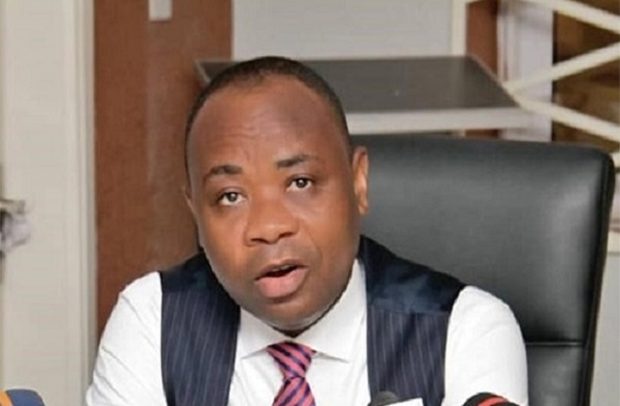Bright Appiah
GOVERNMENT HAS been called upon not to entertain any plans in the future to review the Free Senior High School (SHS) policy, particularly the allocation of cost to parents, because that will defeat the universality of the policy.
According to Child Rights International (CRI), a civil society organisation, which made the appeal, “once cost is assigned to the policy, it will become a failed one.”
Bright Appiah, Executive Director of CRI, who was speaking in an interview with DAILY GUIDE, explained, “This is because the Free SHS policy is not a pro-poor policy but a general one that benefits both the underprivileged and privileged children. The universality of the policy was advanced on the basis that the poor and the rich pay tax and therefore, social policies must benefit them all. Already, there are policies that are meant mainly for the poor as 80% of them strictly target the underprivileged. “Programmes such as the Livelihood Empowerment Against Poverty (LEAP), School Feeding Programme at the primary level, free uniforms, free shoes, capitation grants etc. The only policy that is universal in nature is the Free SHS. Even though the policy design do not take cost from parents, an average parent is likely to spend between GH¢600 to GH¢1,200 in preparation towards enrolling his/her child in school. Further allocation will burden parental preparedness towards their wards to access free education in Ghana.”
The Free Senior High School (SHS) policy was introduced by the New Patriotic Party (NPP) government in September 2017.
Per the policy, every child in Ghana who qualifies for, and is placed in a public Senior High School for their secondary education will have their fees absorbed by the government.
Goal 4 of the United Nations Sustainable Development Goals (SDGs) states: “By 2030, ensure that all girls and boys complete free equitable and quality primary and secondary education leading to relevant and effective learning outcomes.” It has, therefore, been a priority of the government and the Ministry of Education to ensure that education is made free from basic to secondary to afford more children in Ghana the opportunity to access quality education.
Benefit/ Enrolment
According to statistics from the Ghana Education Service (GES), 1.6 million young people have so far benefited from the Free SHS programme since its introduction in 2017. Most of the beneficiaries of the programme are children from deprived communities who before the implementation of the policy were idling at homes because of lack of finances.
At the 2021 mid-year review in Parliament, the Finance Minister, Ken Ofori-Atta, also stated that since the introduction of the policy, student enrolment at the SHS level had increased from 881,600 in 2016 to 1,261,125 in 2021.
According to him, five years after the implementation of the policy, 411 out of the 465 candidates who scored grade A in all subjects at the 2020 WASSCE were beneficiaries of the Free SHS.
He added that the policy has increased enrolment massively, especially in rural communities of Ghana.
Judging from the various figures given by the government, there is no doubt the policy has brought so much gain to the young people and therefore, the government decision to protect it has a strong reason.
Socially and economically, the policy has lifted the financial burden for most parents, who can now be more supportive in their child’s academia without feeling dependent on scholarships or private benefits. The Free SHS policy covers the primary and secondary expenditure that caregivers were burdened to provide despite their economic incapability to do so. It has removed social hindrance of choosing some children over others to be educated.
Cost & Funding
Over the past five years of its implementation, the government announced that it has allocated a total amount of GH¢7.62 billion for the implementation of the Free Senior High School (SHS) programme.
The Minister of Finance said GH¢4.18 billion out of the amount representing 54.76 per cent, was sourced from the Government of Ghana (GoG), while the remaining GH¢3.44 billion, representing 45.24 per cent, came from Annual Budget Funding Amount (ABFA).
According to the government, no loan has been taken to specifically finance the Free SHS policy, which has since its inception been financed from the ABFA and the GoG funding sources.
As a result of the policy, government has shown great commitment in addressing infrastructure challenges in most secondary schools in the country.
The National Buffer Stock Company has also demonstrated its readiness and capacity to supply food to schools when given the needed support.
Major Challenges
Though the nation is getting its dividend in investing in young people through the Free SHS, there are some issues that must be addressed in ensuring that the policy is sustained and driven in the right direction.
First, there is the need for government to address supply of perishable and nonperishable goods to schools, and availability of text books. Also the policy, in its implementation, has not carried out any major evaluation to measure progress of work to determine how service delivery must be coordinated.
Recommendation
“Government, as a matter of urgency, must elevate all social intervention programmes aiding education into a statutory body to ensure sustainability, free flow of social policies, transparency and accountability. Government communication in relation to social policies must be done in manner that describe the policy as social investment policy for better appreciation by stakeholders and beneficiaries,” it said, adding there must be timely release of resources to service providers.
Conclusion
“As a child-centred organisation, CRI believes that Ghana has passed the stage of allocation of cost in the delivery of Free SHS and reached the stage where attention should be mainly on efficiency and quality.”


